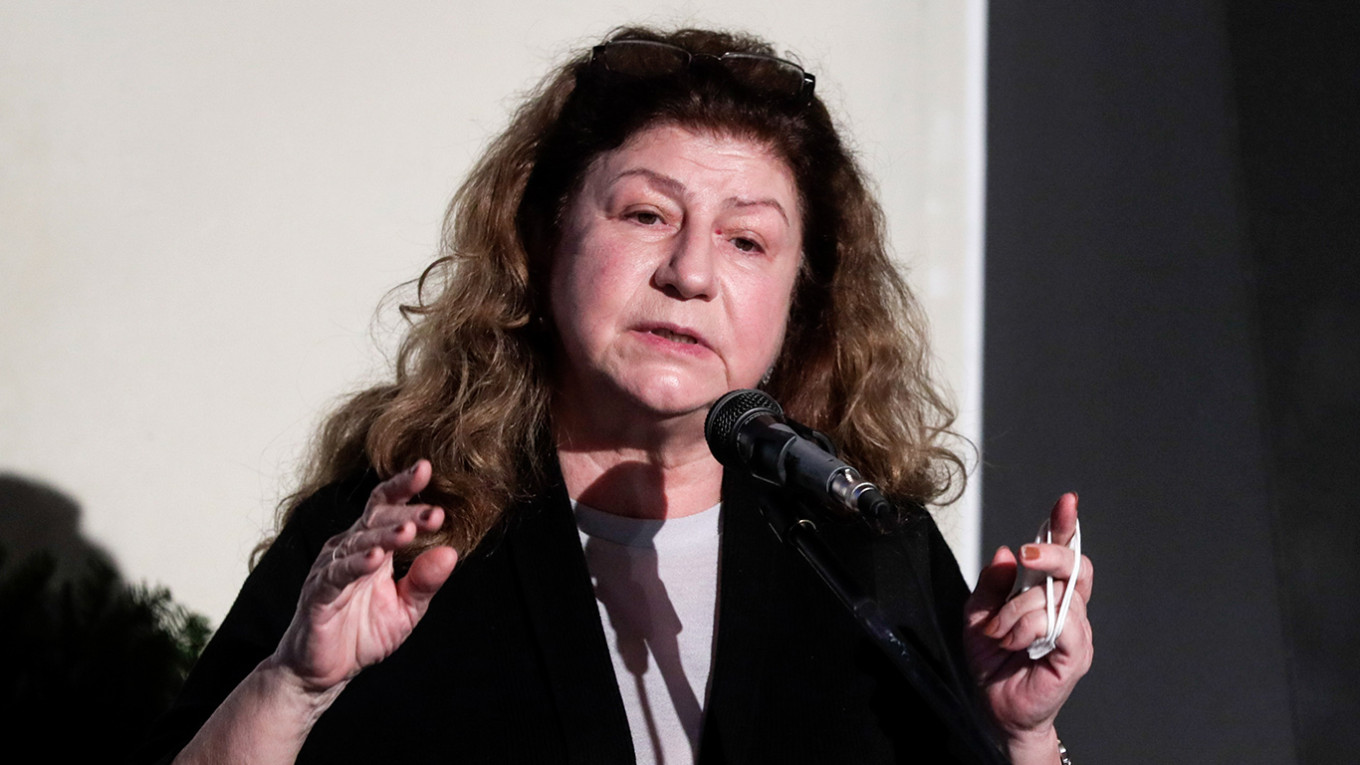Karinna Moskalenko is a distinguished Russian human rights attorney celebrated for her advocacy on behalf of journalists, activists, and opposition figures.
With decades of involvement in international human rights organizations, she has gained recognition for her dedication to upholding freedom of speech and civil rights.
In 2001, she became the first Russian lawyer to successfully represent a case before the European Court of Human Rights. Driven by a commitment to improve human rights protections in Russia, she established the Center for Assistance to International Protection in Moscow in 1994. From 1999 until 2007, she was a member of the Expert Council of the Commissioner for Human Rights in Russia.
Since 2024, Moskalenko has headed the UN Group of Independent Experts focusing on the human rights situation in Belarus.
The Moscow Times interviewed Moskalenko regarding the international options still accessible to Russian citizens and her current efforts in Belarus.
The following conversation has been condensed for brevity and clarity.
The Moscow Times: In 2025, what avenues exist for Russians to safeguard their rights internationally?
Karinna Moskalenko: Russia’s departure from the Council of Europe represents a significant setback for the nation, particularly the loss of the European Court of Human Rights, a vital mechanism. For over twenty years, Russians had grown accustomed to the idea that if they were unable to find justice domestically, they could turn to an international court with binding decisions for Russia. This mechanism played a crucial role in enhancing human rights and the rule of law within the country.
Here’s how it operated: individuals could bring their grievances to the European Court, which would then issue rulings that were obligatory for Russia, thereby enabling changes in previous rulings, modifications of laws, and adjustments in national legal practices. This system began in 1998 when Russia acknowledged the Court’s authority, and though we have only recently ceased, instances of violations by Russian authorities prior to September 16, 2022, still fall under the Court’s jurisdiction.
Presently, many Russians feel they lack an alternative international legal body. However, they actually do have access to a similar quasi-judicial entity known as the UN Human Rights Committee. Russians can file grievances through a comparable process to receive international protection. Unfortunately, this pathway is often overlooked, mainly due to the misconception that while the European Court’s judgments are binding, the decisions of the Human Rights Committee are only recommendations. This is not accurate.
Since January 1, 1992, Russia has been under the purview of the UN Human Rights Committee, which continues to evaluate complaints against it under international law. The Committee’s rulings hold considerable importance.
In recent years, the focus has largely been on the European Court, which became a well-established route, especially as it provided financial compensation. Although the Human Rights Committee acknowledges violations, it leaves states to decide on the compensation without specifying amounts.
Consequently, the Human Rights Committee has been utilized less frequently; pursuing claims in the European Court seemed more straightforward. However, with no other avenues open, Russians who cannot find justice domestically and whose fundamental rights — protected by the European Convention and the International Covenant on Civil and Political Rights — have been infringed still possess the right to appeal. The state is bound to accept the Committee’s jurisdiction for such appeals.
Do these cases take longer than those in the European Court? It varies, but the Committee still offers a genuine avenue for seeking international justice. This applies to everyone under Russian jurisdiction — not just Russian citizens, but all individuals within that jurisdiction.
Many legal professionals, including my colleagues, have argued that the [UN Human Rights Committee] is ineffective. They contend that Russia wasn’t particularly eager to comply with the European Court’s rulings. Nevertheless, those decisions were generally observed. Now it’s essential to make the UN mechanism effective. The UN represents the last international forum available for Russia, suggesting there remains some interest from Russian authorities. We have already observed some responses from Russian officials regarding specific complaints. As long as the agreements allowing Russia’s participation in these mechanisms are not rescinded, Russia remains part of the system. We will work to ensure compliance with the decisions. Multiple mechanisms, forms of appeal, and methods exist for the restoration of violated rights. These should not be overlooked. We must advocate for our rights and strive for their restoration. Therefore, I maintain that the international legal route is still open for Russia.
MT: How feasible is it today to hold violators of human rights accountable, and what are the major challenges?
KM: There is an increased emphasis at the international level — including within the United Nations — not only on identifying and recording human rights violations or acts that can be classified as crimes against humanity but also on securing accountability for those responsible. Various mechanisms are being established to achieve this.
As the newly appointed head of the UN Group of Independent Experts on the Human Rights Situation in Belarus, I can use this as an example.
What does our work entail? It involves establishing facts, gathering documents and evidence, and identifying mechanisms to ensure accountability for human rights violations — or violations that qualify as crimes against humanity. This is a large-scale endeavor that did not just begin this year. A similar group of experts was previously working under the UN High Commissioner for Human Rights, producing reports and analyzing evidence.
Last year, a new independent mandate was established by the UN Human Rights Council resolution. This mandate focuses more closely on state responsibility, particularly in cases where violations are systemic and widespread — which indicate characteristics of crimes against humanity — especially if these violations can be traced back to official state policies or unlawful actions.
We are currently working to identify responsible individuals and document further violations that have occurred since May 2020 and continue to this day. We anticipate making progress in the forthcoming year. In principle, these mandates can be extended for up to six years, although the Human Rights Council must vote on it annually.
One of our fundamental tasks is to engage with the authorities of the country we are examining — in this instance, Belarus.
In September, I addressed a session of the Human Rights Council in Russian, aware that Belarusian representatives invariably speak the language. I aimed to convey that from this prominent UN platform, we share a common language.
I extended an invitation to the [Belarusian authorities] for collaboration, suggesting that we might start with conferences and roundtables to discuss issues pertinent to our mandate. We offered our hand, and they were presented with a valuable opportunity. However, they chose not to respond. They do not even reply to routine inquiries requiring governmental input, which does not reflect well on them.
For example, we inquired about several documented deaths in custody. Every state has an obligation to safeguard the right to life — the cornerstone of international law. We asked them to clarify the causes of death, the investigative processes followed, and whether accountability was established. There may be explanations for some cases. Yet, they did not respond, even to such fundamental queries.
Our aim is to foster dialogue with the Belarusian authorities. Even their allies at the UN Human Rights Council acknowledge the necessity of such dialogue. Without it, our efforts become stagnant: we provide evidence, they deny it, and no progress is made. Thus, it is vital they listen to us, supply our mission with relevant information, and clarify their actions. If they opt not to engage, they forfeit a significant opportunity, which is truly regrettable.

